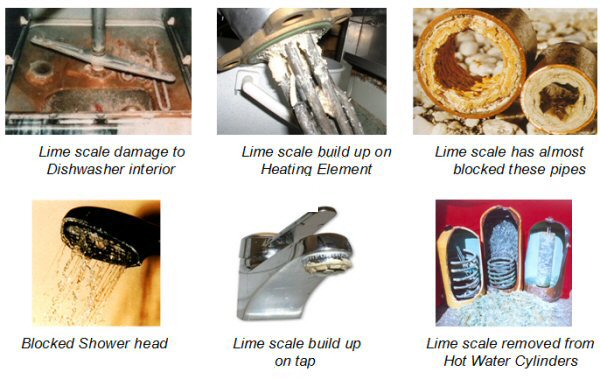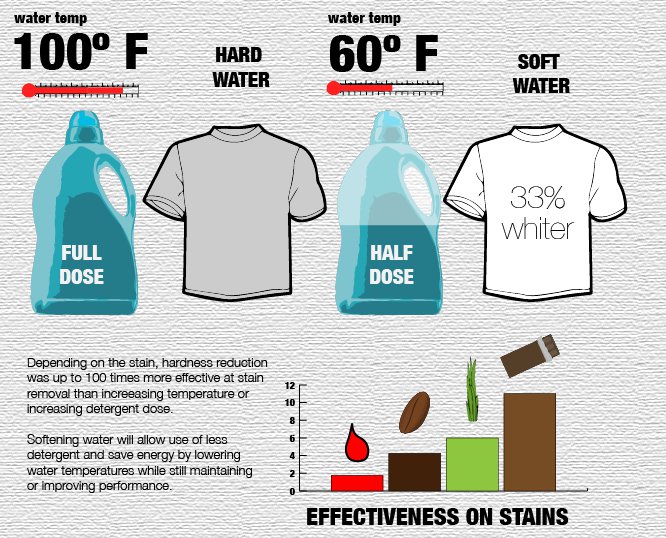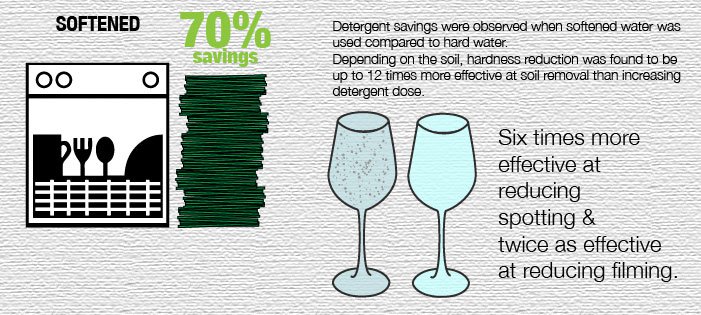|
What are the differences between a softener and a conditioner? Water Conditioners are devices that are created to prevent the minerals that cause hardness from forming scale. These devices use a physical media to inhibit the scale by neutralizing the hardness itself. Due to the fact that water conditioners use a physical media instead of a chemical media, they are sometimes considered a greener alternative in areas where it is forbidden to use salt. Water conditioners do not effectively remove hardness from the water supply, as the only way to do this is with a salt based media.
Does a water softener actually save money on energy? The US Department of Energy says “water heating can account for 14%–25% of the energy consumed in your home.” It is the second highest energy consuming area of a home, next to heating and cooling. Battelle conducted tests to determine how much energy savings household water softeners can provide homeowners. Results of the study have shown that untreated hard water added costs in water heating – up to 48% in some cases. Battelle also found hard water to rapidly lead to clogged shower heads, possibly as soon as a year and a half of regular use. After just one week of constant testing with hard water, more than three-fourths of shower head nozzles became clogged, according to laboratory results. Shower heads using softened water, meanwhile, performed nearly as well as on the day they were installed. Does a water softener actually save money on soaps and detergents? In areas having very hard water, consumers can cut detergent use in dishwashers and washing machines by more than 50 percent after softening, and get the same results.
Softened water might not only save consumers money but could also be environmentally friendly, because it helps cut back on harmful detergents going into water streams. “Better performance and savings can be achieved with softened water,” the report’s authors concluded. The dishwasher study included tests that removed difficult soils, in addition to evaluating spotting and filming. Researchers found that softened water uses almost 30 percent less detergent, but cleans as well as water at 10 grains per gallon hardness level. That detergent savings rises to nearly 70 percent when comparing softened water with water at a 25 gpg level. |
What does a water softener do? Hard water is a buildup of minerals in the water supply. The buildup of minerals can plug up the pipes and wreak havoc on any water based appliances in the home, such as washing machines, dishwashers, faucets and other fixtures. To remove hardness from the water you need the best water softener system out there and at a price that wont break the bank.
What are the advantages of water softeners? The first and most important reason is the removal of hardness from your water. Hard water clogs the plumbing and any water based application that relies on the plumbing. With soft water, you will no longer need to worry about an increase in energy bills, or expensive repair cost. You will also benefit from longer lasting clothing and a clean feeling on your skin after a shower or bath. Are there harmful effects of water softener discharges on household septic tanks? Many people may be under the impression that water conditioning equipment regenerates quite frequently and puts a high loading of sodium salts into the waste water. This, of course, is not true; the average family of four people would require a softener regeneration approximately two or three times a week.
The water quality improvement industry has earnestly sought to sort out the factual information on softener effluent. The septic tank study clearly indicates that there are no adverse effects when water conditioning effluent is discharged into properly installed private septic systems. There are a few additional reports that also explain further evidence of the hardness ions in a softener?s regeneration wastes causing less clogging and maintaining higher permeability than the regular septic tank effluent. (TAKEN DIRECTLY FROM THE WEBSITE OF THE WATER QUALITY ASSOCIATION) |



